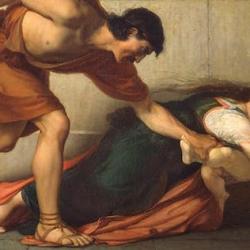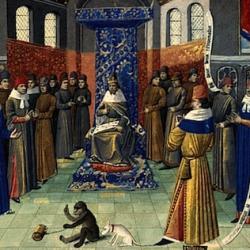William Viestenz’s By the Grace of God joins a growing list of books that, invoking Carl Schmitt and others, argues that secular politics has never been secular, but always parasitic on sacred politics. Viestenz’s book is not an exercise in theory, however, but a theoretically-attentive historical study of the Spain of Franco.
He finds religious motifs everywhere in the Francoist regime. Franco “consolidat[ed] sovereignty and project[ed] national identity through sacred imaging” and so turned to “purifying, exclusionary violence” against “the ever-present spectre of the enemy’s re-emergence, justifying violent reprisals in the name of purity and unity” (5). Franco’s political cosmology was derived from Roman Catholicism, but “his conception of Spanish identity transferred the concept of the sacred onto secular territory” (5). Civil duty became a sacred duty, as Franco “demanded unflagging commitment from its members” (5).
Vieztenz imagines the “sacred as a symbolic shell that is imbued with essential qualities and meanings linked to national identity. Like a tabernacle, a nation’s sacred core is purposefully mysterious – always open to interpretation and speculation. The projection of national sacred truth is not unlike a corpus mysticum, with content and symbolism determined by the corpus naturale‘s sovereign power” (11).
Francoist Spain thus provides a case study of Giorgio Agamben’s claim that the sacred “tends to spill over, both semantically and conceptually, into secular discourse.” Agamben calls this the “signature” of the sacred. In Agamben’s words, “Signatures move and displace concepts and signs from one field to another (in this case, from sacred to profane, and vice versa) without redefining them semantically” (quoted, 8).















